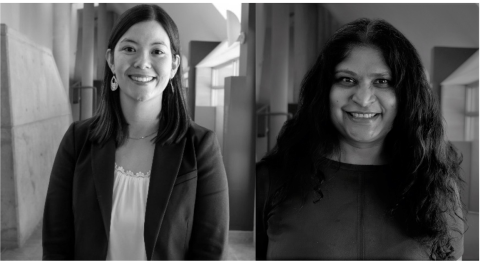Article by dr. Emily Moorhouse and dr. Rona Jualla van Oudenhoven

In big win for campus free speech, Harvard won’t issue statements on hot-button social and political issues | The Foundation for Individual Rights and Expression (thefire.org)
Whether a win or not is debatable of course, as is almost anything and everything in higher education, which is the seat of debate. The insurmountable pressure placed on university administrations to take a political stance on one side or the other on the War in Gaza has been interesting to follow, as universities struggle to manage a genuine threat to its autonomy, function, and survival. It appears that the lines of power and politics are entangling and blurring the lines of academic freedom and academic integrity.
Daily, our office explores ways to best support our students, staff, faculty, and our broader community through the many obstacles they encounter. In this instance, it is the atrocities of war, that the world continues to witness in Libya, Syria, Yemen, Gaza, Sudan, Ukraine and more. We partner to help create safe spaces for the advocacy and activism that essentially and naturally comes from our faculty and student body.
Trent students and faculty have been engaging in open dialogue, peaceful protest and artistic interventions to express their beliefs. Trent administration has been respectfully listening. There is currently a public memorial on Faryon Bridge that acknowledges the innocent young lives lost in the Gaza War and the depth of grief that many are experiencing. Grief is a difficult concept for many to engage with, but one that makes each of us human and this gesture is just that, a call for humanity. The university continues to lend support to its Palestinian and Israeli students, staff and faculty alike and will continue to do so.
Universities teach many subjects relevant to the Israel Palestine Conflict, including history, social and political theories, social justice, psychology, social work, organizational leadership, education and child studies, among others. It should therefore not come as a surprise that universities are places where students think critically and learn to put theory into practice by speaking out about injustices around them.
Our university’s colleges aim to capture the essence of learning. Gzowski College "Enwayaang" is an Anishinaabemowin word meaning, "the way we speak together". How do we speak together from a place of respect, courage and kindness? Can we seek to understand so we can move forward together in a good way?
Otonabee or Odanabe means “river that beats like a heart”. The bridge that connects two banks can honour the trials, tribulations and accomplishments of many during convocation amidst a time of great violence, terror, sadness and global struggles. Neither should erase the other.
Champlain asks us to embody the four components of global citizenship: i. civic responsibilities, ii. cultural awareness, iii. the environment and iv. awareness of the global economy. Students take their civic responsibilities very seriously in an increasingly globalized world.
Lady Eaton College challenges us to “have an open mind” and to “learn everyday”. Many of us can increase our knowledge of history and geopolitics. Education calls for the courage to learn more about each other with an open mind, even if this means having to unlearn a thing or two.
Traill College is where Trent University began 60 years ago and was “designed to empower and give voice to those who had been marginalized”. So, when our community speaks out, it is a sign that they have voice.
Durham GTA Campus, our most diverse campus community speaks to a “transformative learning experience” where “education unfolds on a personal scale”. This comes to life when individual sentiment becomes a collective expression of unity.
Respectful dialogue need not threaten safety. Instead, it can remind us of Trent’s slogan nunc cognosco ex parte, or “now I know in part” while asking us to “Challenge the Way you Think”.

